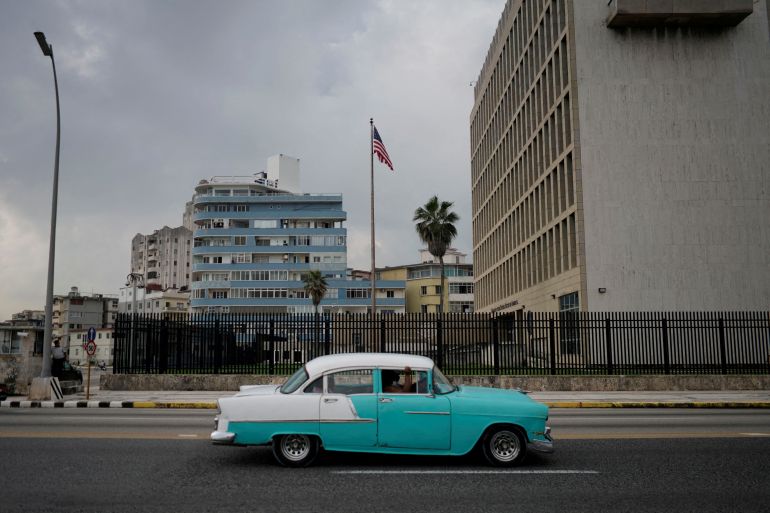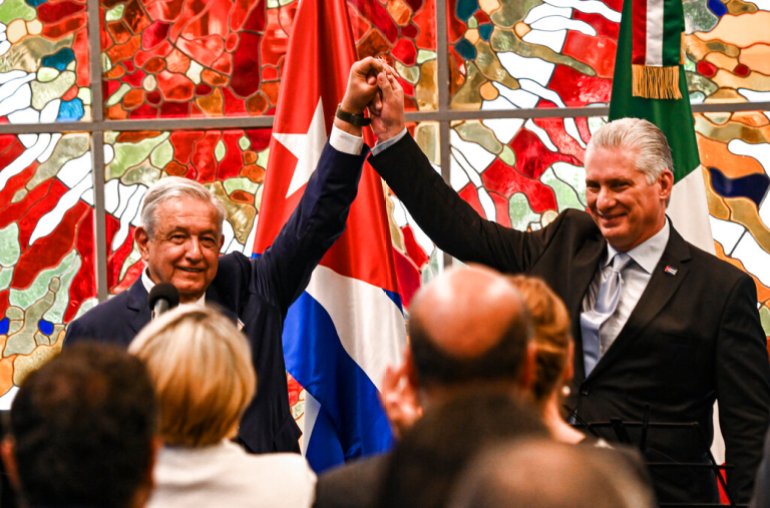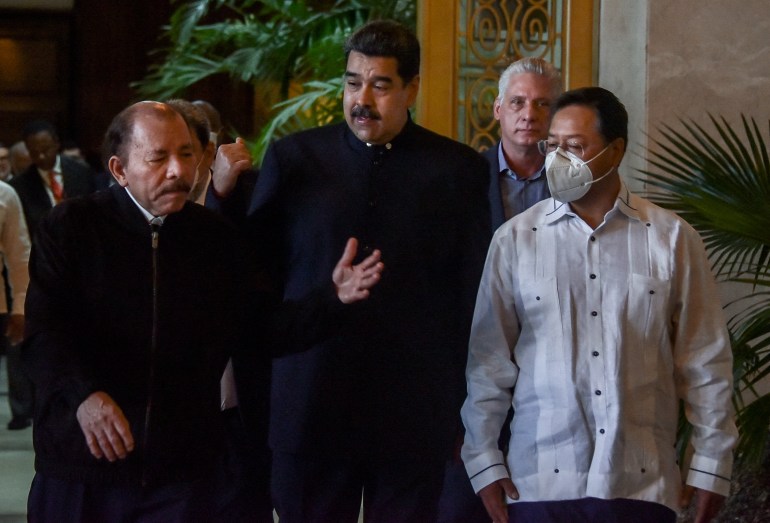US tags Cuba as uncooperative in counterterrorism efforts
‘One more lie’: Havana pushes back against latest US slight amid tensions over upcoming Americas summit.

The Biden administration on Friday once again placed Cuba on a shortlist of countries the United States alleges are “not cooperating fully” in its fight against “terrorism”, further inflaming tensions with the Caribbean island nation.
Secretary of State Antony Blinken, in an assessment on “antiterrorism efforts” published Friday in the US Federal Register, named Cuba among five countries – along with Iran, North Korea, Venezuela and Syria – that the US government said fall short of its expectations.
Keep reading
list of 4 items‘Just the beginning’: US imposes new sanctions on Cuba
Cuban rum, cigars and hotels land in Trump admin’s crosshairs
Cuba US
The Department of State is required by law to provide this list annually to the US Congress.
Cuban Foreign Minister Bruno Rodriguez anticipated the move on Thursday, calling a draft notice from May 11 signed by Blinken “one more lie” coming from Washington.
“The United States again maintains the slander of saying that Cuba doesn’t cooperate sufficiently in the fight against terrorism,” Rodriguez said on Twitter on Thursday, calling it a “pretext to continue an unceasing economic war universally repudiated”.
The US is well aware of #Cuba's clean slate in the struggle against terrorism as well as Cuba's experience as victim of State terrorism. It resorts to slanders in such a sensitive issue as a pretext to continue the unremitting economic warfare repudiated all over the world.
— Bruno Rodríguez P (@BrunoRguezP) May 19, 2022
Relations between Washington and Havana have been fraught for decades and were dealt a setback by former President Donald Trump who in June 2017 reversed an historic rapprochement begun under his predecessor, former President Barack Obama.
Trump later designated Cuba a “state sponsor of terrorism” days before leaving office. Critics called that decision unjustified and aimed at complicating incoming President Joe Biden’s approach to Cuba.
Last year, Havana’s crackdown on street protests during the height of the coronavirus pandemic prompted Biden, who condemned the crackdown, to impose new sanctions on Cuba.
More recently, tensions have risen over US signals that Cuba, Nicaragua and Venezuela will be excluded from a US-hosted Summit of the Americas to be held in Los Angeles next month.

Cuba’s potential exclusion has raised threats of a boycott by a growing number of Latin leaders, including Mexico President Andres Manuel Lopez Obrador.
Kerri Hannan, deputy assistant secretary of state for Western Hemisphere Affairs, warned at a conference on Thursday that countries threatening to skip the regional meeting if Cuba, Venezuela and Nicaragua are not invited risk losing opportunities to engage with the US.
A Biden administration official said Friday the first tranche of invitations to the summit had been sent out, but would not say which countries are on the invitation list and which may had been excluded.
Meanwhile, Biden is considering inviting a Cuban representative to the summit in June, an official told The Associated Press on Friday, as the US administration appeared to recognise the event might collapse over disagreements about the guest list.
It is unclear if Cuba would accept an invitation, which would be extended to someone in the foreign ministry to join as an observer, not as a full participant, the US official said, declining to be identified while speaking about sensitive deliberations.

The updated US assessment of Cuba’s lack of cooperation on “antiterrorism efforts” is almost identical to the one issued by the Biden administration a year ago, which had continued the Trump administration’s determination.
A US Department of State spokesman told Reuters that its Friday decision was a result of a review of “counterterrorism objectives with that country and a realistic assessment of its capabilities”.
The Biden administration on Monday moved to partially rolled back Trump-era restrictions on remittances and travel to Cuba, measures that Havana has blasted as sparse on details, politically driven and insufficient.
The US lifted the cap on family remittances, previously $1,000 per quarter, and authorised donative remittances to non-family members.
In early May, the US embassy began issuing visas for the first time in four years.